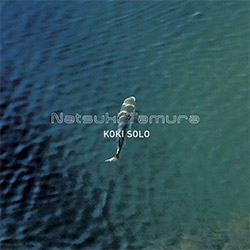
"Koki" translates to "rare in ancient times," referring to ones 70th birthday, a milestone that trumpeter Natsuki Tamura achieves this year, providing proof that such an age is no longer rare, nor that it has affected the tremendous creative and physical powers that Tamura applies to his playing, as heard in this inventive solo album on trumpet, piano, voice and even pots & pans!
In Stock
Quantity in Basket: None
Log In to use our Wish List
Shipping Weight: 3.00 units
Sample The Album:
Natsuki Tamura-trumpet, piano, wok, voice
Click an artist name above to see in-stock items for that artist.
UPC: 456162308661
Label: Libra
Catalog ID: 101-066
Squidco Product Code: 30611
Format: CD
Condition: New
Released: 2021
Country: Japan
Recorded at the artists home in Kobe, Japan, on November 7th, 2020.
"Trumpeter-composer Natsuki Tamura has spent more than five decades doing the unexpected with a sense of adventure, good humor, and lyricism. His latest album Koki Solo (July 9, Libra Records), which gets its title from the Japanese term for one's 70th birthday, is no exception. His fourth recorded excursion into unaccompanied music-making naturally features his dazzling trumpet technique and imagination, but he throws in a few surprises, making his recorded debut on piano and playing a percussion set up consisting of potsa
"Trumpeter-composer Natsuki Tamura has spent more than five decades doing the unexpected with a sense of adventure, good humor, and lyricism. His latest album Koki Solo, which gets its title from the Japanese term for one's 70th birthday, is no exception. His fourth recorded excursion into unaccompanied music-making naturally features his dazzling trumpet technique and imagination, but he throws in a few surprises, making his recorded debut on piano and playing a percussion set up consisting of pots and pans from his kitchen. The result is quintessential Tamura-by turns whimsical, focused, lyrical, abstract, and always surprising.
Indeed, a child-like sense of playfulness and curiosity seems to underlie even the most moody and serious moments of the album. Tamura pushes ideas to see what he can do with them, to see if anything unexpected crops up. He deliberately interrupts and sidetracks himself, so see if a digression turns up something new. There's a whimsical quality to the experimenting, but there's always a serious intent to discover and explore, to express something in a new way. During the trumpet piece,"Sekirei," Tamura interrupts fast, rippling lines with more spacious ones. He plays melodic lines with a clear, pure tone, then with a growling, buzzy sound. Another trumpet solo, "Sagi" is an abstract sound piece that is similarly diverse. Working with a sound pallet of strangled cries, buzzes, shrieks, hisses, and raspberries, Tamura challenges himself to create new sounds.
As Tamura explains in the liner notes to the CD, as a young musician, he would play drums in a band during last set when their regular drummer had to leave early. And at one time he was practicing piano every day as he prepared for music school entrance exams. These memories prompted him to return to those instruments for this CD. However he couldn't fit a drum kit into the room in the apartment where he recorded the disc, so he substituted a wok and some other pots and pans. "My skill on the piano and percussion is poor compared to the trumpet, Tamura says. "But after more than 50 years playing as a professional musician, I thought that I could express my own music without any technique."
Tamura's musical personality and intelligence comes through loud and clear on the percussion and piano tracks. On "Karugamo," for instance, he playfully explores the sonic potential of his assembled kitchen implements, curiously examining and combining high hollow rings, repeated taps, and dry scrapes into sequences of odd, but lovely, sounds. At the piano on "Bora," he creates a wandering rumination as he moves thoughtfully between long rambling single note lines and carefully placed chords and note clusters, and uses the sustain pedal to create color and texture.
In Japan, the 70th birthday is a milestone. The word for it, "koki," derived from a Chinese poem written in the eighth century, when reaching the age was uncommon, is roughly translated as "rare in ancient times." Today, it's not rare to reach one's seventh decade, but Tamura still says, " I'm surprised that I got to 70 years old." To celebrate, he says, "I want to do only what I like to do without doing anything I don't like." This CD is evidence he's doing exactly that.
Japanese trumpeter and composer Natsuki Tamura is internationally recognized for his unique musical vocabulary blending extended techniques with jazz lyricism. This unpredictable virtuoso "has some of the stark, melancholy lyricism of Miles, the bristling rage of late '60s Freddie Hubbard and a dollop of the extended techniques of Wadada Leo Smith and Lester Bowie," according to Mark Keresman of JazzReview.com.
Throughout his career, Tamura has led bands with radically different approaches. Peter Marsh of the BBC had this to say of the 2003 Natsuki Tamura Quartet release Hada Hada: "Imagine Don Cherry woke up one morning, found he'd joined an avant goth-rock band and was booked to score an Italian horror movie. It might be an unlikely scenario, but it goes some way to describing this magnificent sprawl of a record."
In contrast, Tamura has focused on the intersection of European folk music and sound abstraction with Gato Libre since 2003. The band's poetic, quietly surreal performances have been praised for their "surprisingly soft and lyrical beauty that at times borders on flat-out impressionism," by Rick Anderson in CD Hotlist. Originally a quartet that featured Tamura with Fujii on accordion, Kazuhiko Tsumura on guitar, and Norikatsu Koreyasu on bass, after the tragic passing of the group's original guitarist and bassist, Gato Libre morphed into its current configuration, a trio with Tamura, Fujii, and trombonist Yasuko Kaneko.
Since 1997, Tamura has recorded seven CDs with his ongoing duo with pianist (and wife) Satoko Fujii and won accolades from critics and audiences alike. In addition to their intimate duo performances, Tamura collaborates on many of Fujii's own projects, including her big bands in New York, Tokyo, Nagoya, Kobe, and elsewhere.
Tamura has released three CDs as an unaccompanied soloist, including Dragon Nat (2014). He and Fujii are also members of Kaze, a collaborative quartet with French musicians, trumpeter Christian Pruvost and drummer Peter Orins."-Libra
and pans from his kitchen. The result is quintessential Tamura-by turns whimsical, focused, lyrical, abstract, and always surprising. "When I play, I enjoy myself first. I am even more happy if the audience enjoys it, too," Tamura says. "I don't analyze what I do or what I think, I just pursue my feelings. I'm just like a child." Indeed, a child-like sense of playfulness and curiosity seems to underlie even the most moody and serious moments of the album.Tamura pushes ideas to see what he can do with them, to see if anything unexpected crops up. He deliberately interrupts and sidetracks himself, so see if a digression turns up something new. There's a whimsical quality to the experimenting, but there's always a serious intent to discover and explore, to express something in a new way. During the trumpet piece,"Sekirei," Tamura interrupts fast, rippling lines with more spacious ones. He plays melodic lines with a clear, pure tone, then with a growling, buzzy sound. Another trumpet solo, "Sagi" is an abstract sound piece that is similarly diverse. Working with a sound pallet of strangled cries, buzzes, shrieks, hisses, and raspberries, Tamura challenges himself to create new sounds. As Tamura explains in the liner notes to the CD, as a young musician, he would play drums in a band during last set when their regular drummer had to leave early. And at one time he was practicing piano every day as he prepared for music school entranceexams. These memories prompted him to return to those instruments for this CD. However he couldn't fit a drum kit into the room in the apartment where he recorded the disc, so he substituted a wok and some other pots and pans. "My skill on the piano and percussion is poor compared to the trumpet, Tamura says. "But after more than 50 years playing as a professional musician, I thought that I could express my own music without any technique." Tamura's musical personality and intelligence comes through loud and clear on the percussion and piano tracks. On "Karugamo," for instance, he playfully explores the sonic potential of his assembled kitchen implements, curiously examining and combining high hollow rings, repeated taps, and dry scrapes into sequences of odd, but lovely, sounds. At the piano on "Bora," he creates a wandering rumination as he moves thoughtfully between long rambling single note lines and carefully placed chords and note clusters, and uses the sustain pedal to createcolor and texture. In Japan, the 70th birthday is a milestone. The word for it, "koki," derived from a Chinese poem written in the eighth century, when reaching the age was uncommon, is roughly translated as "rare in ancient times." Today, it's not rare to reach one's seventh decade, but Tamura still says, I'm surprised that I got to 70 years old." To celebrate, he says, "I want to do only what I like to do without doing anything I don't like." This CD is evidence he's doing exactly that. Japanese trumpeter and composer Natsuki Tamura is internationally recognized for his unique musical vocabulary blending extended techniques with jazz lyricism. This unpredictable virtuoso "has some of the stark, melancholy lyricism of Miles, the bristling rage of late '60s Freddie Hubbard and a dollop of the extended techniques of Wadada Leo Smith and Lester Bowie," according to Mark Keresman of JazzReview.com. Throughout his career, Tamura has led bands with radically different approaches. PeterMarsh of the BBC had this to say of the 2003 Natsuki Tamura Quartet release Hada Hada: "Imagine Don Cherry woke up one morning, found he'd joined an avant goth-rock band and was booked to score an Italian horror movie. It might be an unlikely scenario, but it goes some way to describing this magnificent sprawl of a record." In contrast, Tamura has focused on the intersection of European folk music and sound abstraction with Gato Libre since 2003. The band's poetic, quietly surreal performances have been praised for their "surprisingly soft and lyrical beauty that at times borders on flat-out impressionism," by Rick Anderson in CD Hotlist. Originally a quartet that featured Tamura with Fujii on accordion, Kazuhiko Tsumura on guitar, and Norikatsu Koreyasu on bass, after the tragic passing of the group's original guitarist and bassist, Gato Libre morphed into its current configuration, a trio with Tamura, Fujii, and trombonist Yasuko Kaneko. Since 1997, Tamura has recorded seven CDswith his ongoing duo with pianist (and wife) Satoko Fujii and won accolades from critics and audiences alike. In addition to their intimate duo performances, Tamura collaborates on many of Fujii's own projects, including her big bands in New York, Tokyo, Nagoya, Kobe, and elsewhere. Tamura has released three CDs as an unaccompanied soloist, including Dragon Nat (2014). He and Fujii are also members of Kaze, a collaborative quartet with French musicians, trumpeter Christian Pruvost and drummer Peter Orins. "-Libra www.natsukitamura.com/Artist Biographies
• Show Bio for Natsuki Tamura "Japanese trumpeter and composer Natsuki Tamura is internationally recognized for a unique musical vocabulary that blends extended techniques with jazz lyricism. This unpredictable virtuoso's seemingly limitless creativity led François Couture in All Music Guide to declare that "... we can officially say there are two Natsuki Tamuras: The one playing angular jazz-rock or ferocious free improv... and the one writing simple melodies of stunning beauty... How the two of them live in the same body and breathe through the same trumpet might remain a mystery." Born on July 26, 1951, in Otsu, Shiga, Japan, Tamura first picked up the trumpet while performing in his junior high brass band. He began his professional music career after he graduated from high school, playing in numerous bands including the World Sharps Orchestra, Consolation, Skyliners Orchestra, New Herd Orchestra, Music Magic Orchestra, and the Satoko Fujii Ensemble, as well as in his own ensemble. He was the trumpeter for numerous national television shows in Japan from 1973-1982, including The Best Ten, Music Fair, Kirameku Rhythm and many others. In 1986, he came to the United States to study at Berklee College of Music. He then returned to his native Japan to perform and teach at the Yamaha Popular Music School and at private trumpet studios in Tokyo and Saitama, before coming back to the US to study at New England Conservatory. He made his debut recording as a leader in 1992 on Tobifudo. In 1997 he released the duo album How Many? with pianist Satoko Fujii, who is also his wife. It marked the beginning of an artistic collaboration that continues up to the present. The duo has made a total of five CDs over the years, including 2012's Muku. "Muku contains some truly stunning, spine-tingling music...its sheer beauty and elegance is what lingers most," wrote Dave Wayne in All About Jazz. "Fujii's orchestral technique, clear chromatic lines and "prepared piano" devices contrast effectively with Tamura's arsenal of extended techniques which he executes with a warm, vocalized tone throughout the trumpet's full range," Ted Panken said in his four-star DownBeat review. Tamura's collaborations with Fujii reveal an intense musical empathy, and have garnered wide popular and critical acclaim. Jim Santella in All About Jazz described their synergy well in his glowing review of the couple's 2006 Not Two disc, In Krakow, In November: "... the creative couple forcefully demonstrates what can happen when you let your musical ideas run free... Similarly, Tamura's mournful trumpet can fly high or low in search of his next surprise. Oftentimes, they both issue plaintive moans that sing like angels on high." Their sixth duet album is due out in 2017. In 1998, Tamura began recording his unaccompanied solo performances. The stunning solo trumpet debut release, A Song for Jyaki earned a Writers Choice 1998 in Coda magazine, and Andy Bartlett wrote in Coda, "A fabulous set of hiccuping leaps, drones and post-bop trumpet hi-jinx. Tamura goes from growling lows to fluid, free solo runs and echoes not only Don Cherry's slurring anti-virtuosic chops but also Kenny Wheeler's piercing highwire fullness." He followed it up in 2003 with KoKoKoKe, which Jon Davis described in Exposé as "Buddhist chants from an alien planet." Grego Applegate Edwards explains that on Tamura's most recent solo album, 2013's Dragon Nat, "he pares down to focus on simple unwinding melodic material, the sound of his trumpet as a sensuous thing, a periodicity. Taken as a whole it is a kind of environmental tone poem for the moment Natsuki is in now." 2003 was a breakout year for Tamura as a bandleader, with the release of Hada Hada, featuring his free jazz-avant rock quartet with Fujii on synthesizer. Peter Marsh of the BBC had this to say about the high voltage CD: "Imagine Don Cherry woke up one morning, found he'd joined an avant goth-rock band and was booked to score an Italian horror movie. It might be an unlikely scenario, but it goes some way to describing this magnificent sprawl of a record." The quartet's 2004 Quartet release Exit was deemed "...a brilliantly executed set with a neon glow," by Dan McClenaghan in All About Jazz. In 2005, Tamura made a 180-degree turn in his music with the debut of his all acoustic Gato Libre quartet. Focusing on the intersection of European folk music and sound abstraction, the quartet featured Fujii on accordion, Kazuhiko Tsumura on guitar, and Norikatsu Koreyasu on bass. The quartet's poetic, quietly surreal performances have been praised for their "surprisingly soft and lyrical beauty that at times borders on flat-out impressionism," by Rick Anderson in CD Hotlist. Dan McClenaghan in All About Jazz described their fourth CD, Shiro, as "intimate, something true to the simple beauty of the folk tradition...Tamura's career has largely been about dissolving musical boundaries. With Gato Libre and Shiro, the trumpeter extends his reach even deeper into the prettiest, most accessible of his endeavors." After the unexpected passing of Norikatsu in 2012, Tamura added trombonist Yasuko Kaneko to the group. The new configuration has toured Europe and Japan and released its debut recording, DuDu, in 2014. "DuDu follows the winning formula of its predecessors but, as with the other discs, eschews the formulaic. The result is another sublimely satisfying, elegant record that brims with raw excitement and a reflective nostalgia," writes Hrayr Attarian in All About Jazz. With the tragic death of guitarist Kazuhiko Tsumura, Gato Libre is now a trio. They will release a CD and LP in 2017. In 2010, Tamura debuted a new electric quartet, First Meeting, featuring Fujii, drummer Tatsuhisa Yamamoto and electric guitarist Kelly Churko. Their first release, Cut the Rope, is "is a noisy, free, impatient album, and ranks among Fujii and Tamura's most accomplished," according to Steve Greenlee in the Boston Globe. While fronting groups and recording as a leader, Tamura has also played an integral role in nearly all of Satoko Fujii's many projects. He is featured on all of the CDs by Satoko Fujii's various orchestras (NY, Tokyo, Nagoya, Kobe, and Berlin) and has contributed original compositions and arrangements to each of their 19 critically celebrated albums. In addition, he was a featured soloist in the Satoko Fujii Quartet, her avant-rock free jazz group that also included Tatsuya Yoshida of The Ruins. Of his work on the quartet's 2003 release Minerva, Mark Keresman wrote in JazzReview.com, "Natsuki Tamura's trumpet has some of the stark, melancholy lyricism of Miles, the bristling rage of late 60s Freddie Hubbard and a dollop of the extended techniques of Wadada Leo Smith and Lester Bowie." Tamura is a vital member of Fujii's Min-Yo Ensemble as well. "Tamura tempers his avant-garde antics with an innate lyricism," wrote Steve Smith of Time Out New York in his review of Fujin Raijin, the intimate acoustic quartet's debut CD. He's also been singled out for his contributions to Fujii's ma do ensemble. "With Tamura's brash and glowing lines, the band incorporates mesmeric ostinatos and thrusting opuses into the grand schema," Glenn Astarita wrote in Ejazznews about their first CD, Desert Ship. Collaborative groups also play an important role in Tamura's career. Most recently, Tamura joined Fujii and two French musicians, trumpeter Christian Pruvost and drummer Peter Orins, to form Kaze, which made their recording debut in 2011. In 2015, they released their third album, Uminari, which Jazz Magazine (France) called, "a compelling example of free jazz today. Compositions are perfectly scripted, with a well-oiled interaction and playing of beautiful power..." The collaborative trio Junk Box, which he co-founded in 2006 along with pianist Fujii and drummer John Hollenbeck, plays Fujii's "composed improvisations," graphic scores that take "ensemble dynamics to great creative heights," says Kevin Le Gendre in Jazzwise. Their music "is full of bluster and agitation that nonetheless retains moments of great melodic beauty, usually by way of concise, pertly pretty motifs that trumpeter Tamura plays in between bursts of withering roars that often dissolve into austere overtones." Their premiere CD, Fragment, appeared in 2006. As Daniel Spicer wrote of Fragment in JazzWise, "Tamura spits out gloriously rude Lester-Bowie-like snorts, lows like a herd of robotic cattle or makes like a wheezy howler monkey... Cool and clever." Glenn Astarita of All About Jazz declared it "Required listening." Along the way, there have been one-off cooperative groups and sideman appearances for Tamura as well. In the Tank, an ad hoc quartet with Fujii and electric guitarists Takayuki Kato and Elliott Sharp, is a "triumphant electro-acoustic adventure" according to Daniel Spicer of Jazzwise. "Think AMM meets blues guitar meets 1970s Miles Davis and you get some idea of the disc's flavor: a slow-moving panorama for the ears, where sounds are systematically added, repeated, refined, and replaced in turn," wrote Nate Dorward in Cadence. Tamura and Fujii were one of two piano/trumpet duos featured on the Double Duo Crossword Puzzle CD, a live recording with Dutch trumpeter Angelo Verploegen and pianist Misha Mengelberg. Tamura has also toured and recorded with saxophonist Larry Ochs' Sax and Drumming Core, and appeared on albums by drummer Jimmy Weinstein, saxophonist Raymond McDonald, and CDs by Japanese free-jazz pioneers trumpeter Itaru Oki and pianist Masahiko Sato. In 2014 he released Nax, a duet album with bassist Alexander Frangenheim. Tamua has toured throughout Japan, North America, and Europe, appearing at major jazz festivals, concert halls, and clubs." ^ Hide Bio for Natsuki Tamura
6/25/2025
Have a better biography or biography source? Please Contact Us so that we can update this biography.
Track Listing:
1. Sekirei 6:15
2. Karugamo 8:17
3. Kawau 6:36
4. Bora 9:43
5. Sagi 5:18
6. Kamome 7:14
7. Chidori 8:25
8. Isoshigi 2:47
Improvised Music
Free Improvisation
Jazz
Asian Improvisation & Jazz
Satoko Fujii & Natsuki Tamura's Libra Label
Recordings featuring brass instruments - trumpets, trombones, tubas, other horns
Piano & Keyboards
Unusual Vocal Forms
Solo Artist Recordings
Staff Picks & Recommended Items
Search for other titles on the label:
Libra.


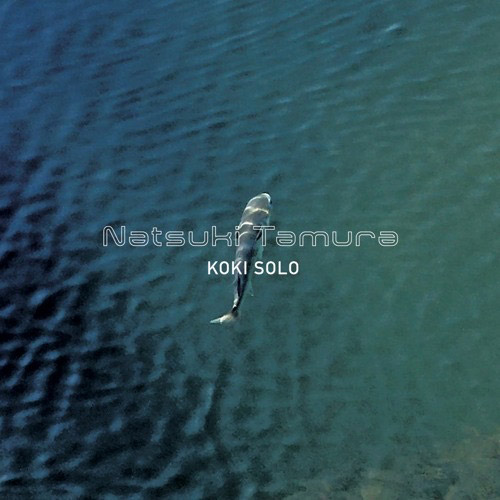




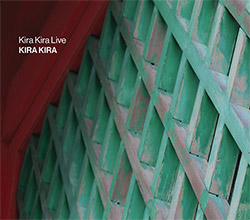

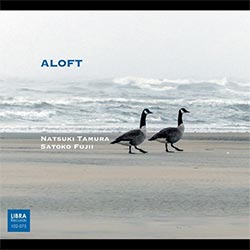


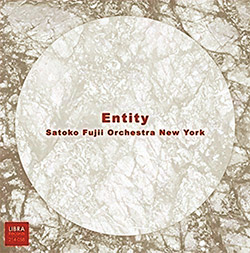
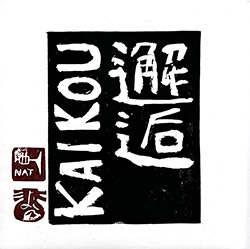
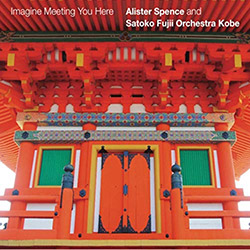

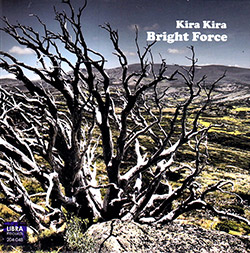




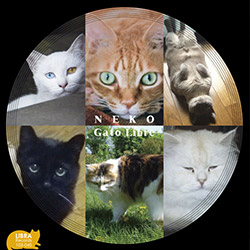









![Eternities: Rides Again [CASSETTE]](https://www.teuthida.com/productImages/misc4/36247.jpg)

![Lopez, Francisco: Untitled (2021-2022) [2 CDs]](https://www.teuthida.com/productImages/misc4/36438.jpg)




![Eventless Plot | Haarvol: The Subliminal Paths [CASSETTE + DOWNLOAD]](https://www.teuthida.com/productImages/misc4/36232.jpg)












![Eventless Plot | Francesco Covarino: Methexis [CASSETTE + DOWNLOAD]](https://www.teuthida.com/productImages/misc4/36231.jpg)

![Brown, Dan / Dan Reynolds: Live At The Grange Hall [unauthorized][CASSETTE]](https://www.teuthida.com/productImages/misc4/36245.jpg)





![Das B (Mazen Kerbaj / Mike Majkowski / Magda Mayas / Tony Buck): Love [VINYL]](https://www.teuthida.com/productImages/misc4/36329.jpg)


![Hemphill Stringtet, The: Plays the Music of Julius Hemphill [VINYL]](https://www.teuthida.com/productImages/misc4/36409.jpg)



![Halvorson, Mary Septet: Illusionary Sea [2 LPS]](https://www.teuthida.com/productImages/misc4/17952.jpg)




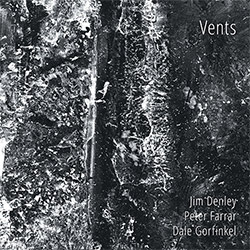
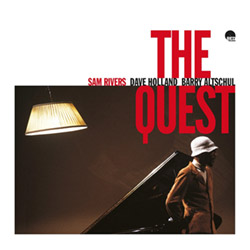
![Re-Ghoster Extended: The Zebra Paradox [VINYL]](https://www.teuthida.com/productImages/misc4/36204.jpg)
![FDF Trio: Possibility And Prejudices From Within A Cup [VINYL]](https://www.teuthida.com/productImages/misc4/36205.jpg)
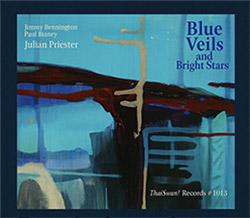

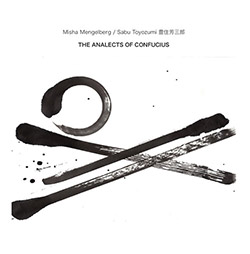

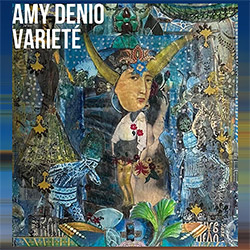



![Money : Money 2 [2 CDs]](https://www.teuthida.com/productImages/misc4/35894.jpg)




![Klinga, Erik: Elusive Shimmer [VINYL]](https://www.teuthida.com/productImages/misc4/36258.jpg)
![CHANGES TO blind (Phil Zampino): Volume 9 - I Wave on a Fine Vile Mist [CD + DOWNLOAD]](https://www.teuthida.com/productImages/misc4/36061.jpg)

![Wallmart / Rubbish: Asset Protection [split CD]](https://www.teuthida.com/productImages/misc4/35900.jpg)


![+Dog+: The Family Music Book Vol. 5 [2 CDs]](https://www.teuthida.com/productImages/misc4/35897.jpg)
![Kuvveti, Deli : Kuslar Soyledi [CASSETTE w/ DOWNLOAD]](https://www.teuthida.com/productImages/misc4/36107.jpg)

![Nakayama, Tetsuya: Edo Wan [CASSETTE w/ DOWNLOAD]](https://www.teuthida.com/productImages/misc4/36105.jpg)




![Yiyuan, Liang / Li Daiguo: Sonic Talismans [VINYL]](https://www.teuthida.com/productImages/misc4/35957.jpg)






![Palestine, Charlemagne / Seppe Gebruers: Beyondddddd The Notessssss [VINYL]](https://www.teuthida.com/productImages/misc4/36206.jpg)
![Palestine, Charlemagne / Seppe Gebruers: Beyondddddd The Notessssss [NEON GREEN VINYL]](https://www.teuthida.com/productImages/misc4/36207.jpg)

![Laubrock, Ingrid: Purposing The Air [2 CDs]](https://www.teuthida.com/productImages/misc4/35639.jpg)

![Yoko, Ono / The Great Learning Orchestra: Selected Recordings From Grapefruit [2 CDs]](https://www.teuthida.com/productImages/misc4/35841.jpg)









![Zorn, John / JACK Quartet: The Complete String Quartets [2 CDs]](https://www.teuthida.com/productImages/misc4/35609.jpg)

![Lonsdale, Eden: Dawnings [2 CDs]](https://www.teuthida.com/productImages/misc4/35480.jpg)



![Sorry For Laughing (G. Whitlow / M. Bates / Dave-Id / E. Ka-Spel): Rain Flowers [2 CDS]](https://www.teuthida.com/productImages/misc4/35985.jpg)

![Rolando, Tommaso / Andy Moor : Biscotti [CASSETTE w/ DOWNLOADS]](https://www.teuthida.com/productImages/misc4/36106.jpg)


![Electric Bird Noise / Derek Roddy: 8-10-22 [CD EP]](https://www.teuthida.com/productImages/misc4/35970.jpg)







![Elephant9 : Mythical River [VINYL]](https://www.teuthida.com/productImages/misc4/34624.jpg)



![Elephant9 with Terje Rypdal: Catching Fire [VINYL 2 LPs]](https://www.teuthida.com/productImages/misc4/35355.jpg)
![Deerlady (Obomsawin, Mali / Magdalena Abrego): Greatest Hits [VINYL]](https://www.teuthida.com/productImages/misc4/34876.jpg)







![Surplus 1980: Illusion of Consistency [CD]](https://www.teuthida.com/productImages/misc4/35069.jpg)
![Staiano, Moe: Away Towards the Light [VINYL + DOWNLOAD]](https://www.teuthida.com/productImages/misc4/35037.jpg)
![Coley, Byron: Dating Tips for Touring Bands [VINYL]](https://www.teuthida.com/productImages/misc4/17906.jpg)

![Lost Kisses: My Life is Sad & Funny [DVD]](https://www.teuthida.com/productImages/misc4/lostKissesDVD.jpg)